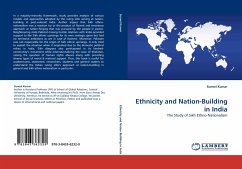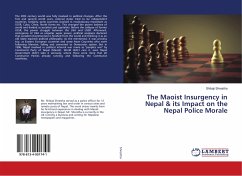
Kiswahili Chetu: The Swahili Language as a Political Stabilizer
A Comparative Study of Kenya and Tanzania
Versandkostenfrei!
Versandfertig in 6-10 Tagen
39,99 €
inkl. MwSt.

PAYBACK Punkte
20 °P sammeln!
Among sub-Saharan African countries, Tanzania is famous for both its Swahili language as well as its reputable political stability. However, Tanzania's neighbor to the north, Kenya, is also a Swahili-speaking country and yet Kenya is infamous (especially in recent years) for its political instability and ethno-political violence, as exemplified by the months of ethnically-motivated violence after the 2007 presidential elections. Kenya and Tanzania seem to be almost on opposite ends of the spectrum of political stability. This book explores why these two countries, with many similarities, end u...
Among sub-Saharan African countries, Tanzania is famous for both its Swahili language as well as its reputable political stability. However, Tanzania's neighbor to the north, Kenya, is also a Swahili-speaking country and yet Kenya is infamous (especially in recent years) for its political instability and ethno-political violence, as exemplified by the months of ethnically-motivated violence after the 2007 presidential elections. Kenya and Tanzania seem to be almost on opposite ends of the spectrum of political stability. This book explores why these two countries, with many similarities, end up on such differing political trajectories, by looking at Kenya's and Tanzania's relationship with the Swahili language and each country's ethnic realities throughout modern history.












